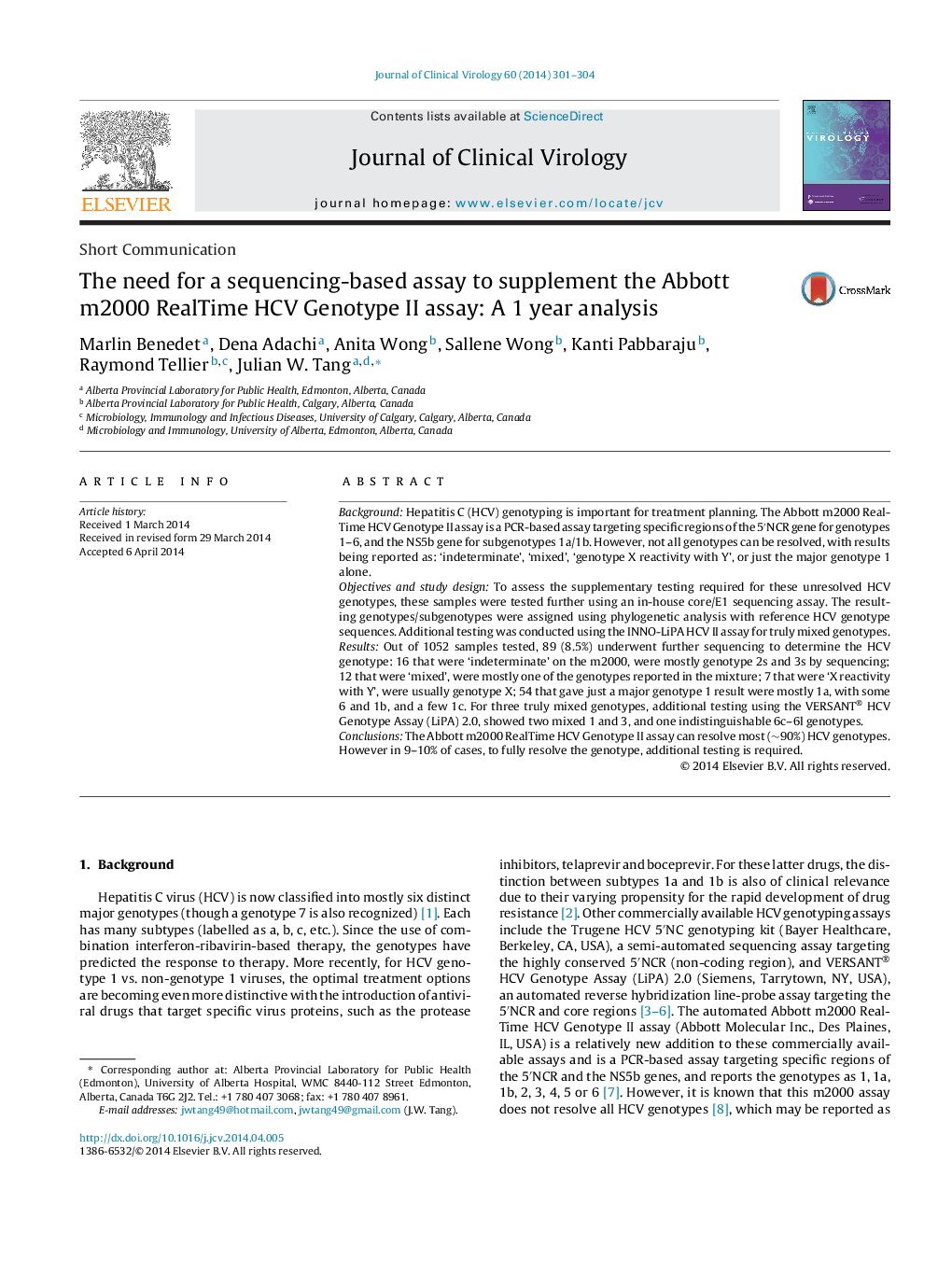| Article ID | Journal | Published Year | Pages | File Type |
|---|---|---|---|---|
| 3368946 | Journal of Clinical Virology | 2014 | 4 Pages |
•The Abbott m2000 HCV genotyping II assay resolves over 90% of the HCV genotypes (G).•Out of 1052 samples tested, 89 (8.5%) required further sequencing.•Of these 89, 54 G1 samples were mostly sub-genotyped as 1a, with some 6, 1b and 1c.•Of these 89, 16 ‘indeterminate’ samples were mostly G2s and G3s.•Of these 89, 12 ‘mixed’ samples were mostly one of the genotypes from the mixture.
BackgroundHepatitis C (HCV) genotyping is important for treatment planning. The Abbott m2000 RealTime HCV Genotype II assay is a PCR-based assay targeting specific regions of the 5′NCR gene for genotypes 1–6, and the NS5b gene for subgenotypes 1a/1b. However, not all genotypes can be resolved, with results being reported as: ‘indeterminate’, ‘mixed’, ‘genotype X reactivity with Y’, or just the major genotype 1 alone.Objectives and study designTo assess the supplementary testing required for these unresolved HCV genotypes, these samples were tested further using an in-house core/E1 sequencing assay. The resulting genotypes/subgenotypes were assigned using phylogenetic analysis with reference HCV genotype sequences. Additional testing was conducted using the INNO-LiPA HCV II assay for truly mixed genotypes.ResultsOut of 1052 samples tested, 89 (8.5%) underwent further sequencing to determine the HCV genotype: 16 that were ‘indeterminate’ on the m2000, were mostly genotype 2s and 3s by sequencing; 12 that were ‘mixed’, were mostly one of the genotypes reported in the mixture; 7 that were ‘X reactivity with Y’, were usually genotype X; 54 that gave just a major genotype 1 result were mostly 1a, with some 6 and 1b, and a few 1c. For three truly mixed genotypes, additional testing using the VERSANT® HCV Genotype Assay (LiPA) 2.0, showed two mixed 1 and 3, and one indistinguishable 6c–6l genotypes.ConclusionsThe Abbott m2000 RealTime HCV Genotype II assay can resolve most (∼90%) HCV genotypes. However in 9–10% of cases, to fully resolve the genotype, additional testing is required.
